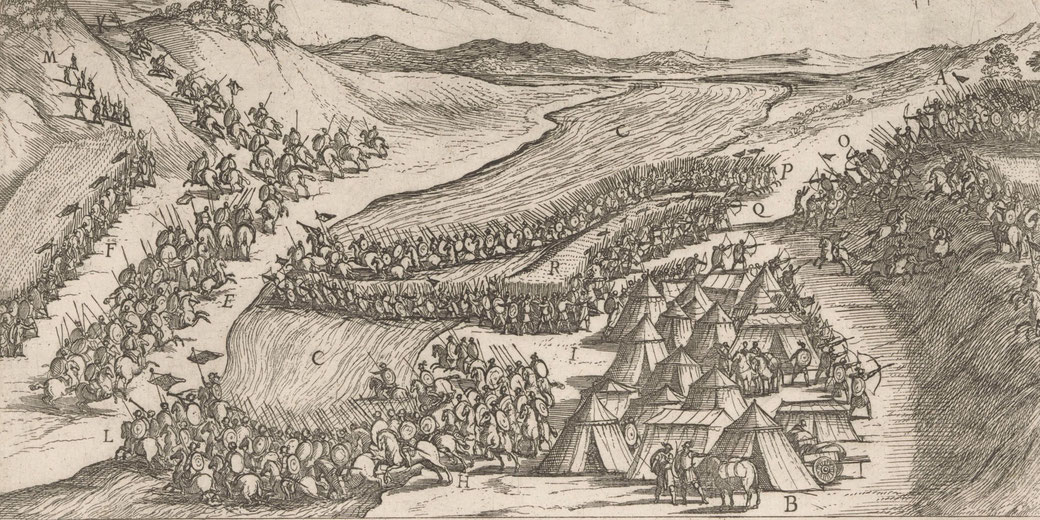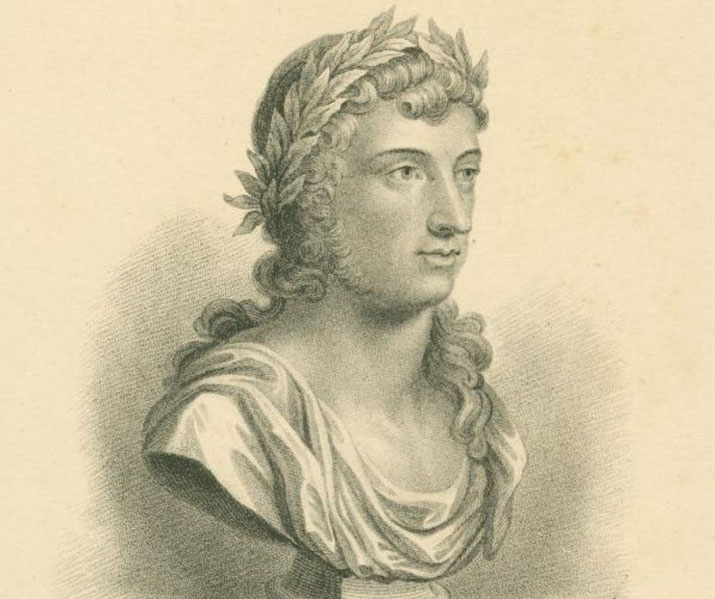The unbelievable life of Xenophon: Ancient Greek soldier, historian, and exile

During one of the most uncertain periods in Greek history, Xenophon of Athens lived a truly incredible life. Through a series of decisions that removed him from Athenian political life, he travelled across the Greek and Persian worlds, took part in notable military expeditions, and composed some of the most long-lasting texts from antiquity.
As both a participant in and recorder of his age, he left behind a body of work that blended personal experience with a thoughtful account.
Xenophon as a soldier
By the end of the Peloponnesian War, young men from aristocratic Athenian families looked for military careers outside the limits of their war-weary city.
As a result, Xenophon entered the army of Cyrus the Younger around 401 BCE, after he consulted Socrates, who advised him to seek guidance from the oracle at Delphi.
His role in the campaign began as an observer, but circumstance forced him into leadership.
When Cyrus died at Cunaxa and the mercenary commanders were betrayed and killed, the Greek force known as the Ten Thousand found itself leaderless and trapped deep inside the Persian Empire.
In the desperate conditions that followed, Xenophon delivered a speech which urged the men to take charge of their own fate and elect new generals.
From that moment, he took a prominent role in organising the retreat northwards through Armenia and across the Black Sea.
Each decision he made involved careful planning, negotiations with local rulers, and daily concerns for discipline and supply.
His account of the march, which later formed the basis of the Anabasis, showed how a civilian with no prior command could rise through necessity and guide an army to survival.
His most famous work: The Anabasis
Xenophon likely began writing the Anabasis decades after the expedition’s conclusion, during a later stage of his life.
Because it was written in the third person and because it presented Xenophon as a character rather than the author, the narrative described the events with precision and balance.
This choice was unusual for the time, but it helped him reflect on leadership without appearing arrogant or self-congratulatory.
Each chapter covered the challenges of food shortages, enemy attacks, harsh weather, and conflicting loyalties among the Greek soldiers.
Rather than a simple account of military movements, the Anabasis examined the soldiers' responses when hardship struck under distant authority and amidst pervasive uncertainty.
Xenophon described councils where opinions were debated, moments where discipline collapsed, and situations where diplomacy achieved outcomes that violence could not produce.
His approach to writing military history gave readers tactical analysis alongside deeper understanding of conduct under fire.
He provided an account of behaviour and judgement under pressure. For students of leadership, the Anabasis became a manual on how to manage people and problems under extreme conditions.

Xenophon the historian
Following the completion of his account of the expedition, Xenophon turned his attention to recording major events of the Greek world.
His work Hellenica was a continuation of Thucydides’ unfinished history of the Peloponnesian War through a series of books which covered the years from 411 BCE to 362 BCE and focused on the decline of Athenian power, the rise of Sparta, and the changing alliances between the city-states.
Unlike Thucydides, who examined causes through detailed speeches and political commentary, Xenophon preferred short profiles of key individuals and moral lessons drawn from their actions.
By concentrating on personalities such as Lysander, Agesilaus, and Thrasybulus, he offered readers a sense of how leadership could succeed or fail depending on its virtues.
Xenophon did not conceal his admiration for Sparta, particularly its discipline and sense of duty.
In his Agesilaus, a short biography of the Spartan king, he praised qualities that stood in contrast to what he saw as the uncertainty of Athenian democracy.
For historians today, Hellenica provides important evidence for the period between the end of the Peloponnesian War and the rise of Thebes, even though it often avoids deeper analysis or broader explanation.
Xenophon the political philosopher
From his earliest dialogues with Socrates, Xenophon developed an interest in how humans ought to live, lead, and govern.
His political writings, though less organised than those of Plato, focused on a consistent concern with the practical application of wisdom to rule and the maintenance of justice through structured order.
In the Cyropaedia, he presented a partly fictional account of the Persian king Cyrus the Great.
Through the structure of a biography, he explored how rulers could maintain power without cruelty, and how education could prepare a young nobleman for responsibility.
In works such as the Oeconomicus and Memorabilia, he returned to Socrates as a central figure and included conversations that dealt with household management, civic duty, and personal virtue.
His portrayal of Socrates focused less on theories and more on ethical behaviour in daily life.
The Socrates of Xenophon valued moderation and emphasised obedience to law, presenting self-restraint as a guiding principle.
In all his philosophical works, Xenophon presented leadership as something grounded in character rather than birth or popularity.
He directed attention toward the actions that built trust, maintained order, and served the long-term good of a community.
What happened to Xenophon?
After his return from the expedition, Xenophon found himself alienated from Athens due to his close ties with Sparta.
His association with the Spartan king Agesilaus during the Corinthian War likely deepened his unpopularity, though his break with Athens may have begun earlier.
Rather than return home, he accepted land near Scillus in Elis, close to Olympia, where he lived in relative comfort for many years.
During this time, he wrote most of his historical and philosophical works, often in isolation from the political debates in Athens.
His estate provided him with security, but also demonstrated the permanent break from his native city.
Following the defeat of Sparta at the Battle of Leuctra in 371 BCE, his support weakened.
Nevertheless, the Spartans allowed him to remain on his estate. Near the end of his life, Athens repealed his exile, though there is no record that he returned.
He likely died around 354 BCE after witnessing the rise of Thebes and the growing power of Macedon, though the exact date is uncertain.
His writings survived through centuries of copying and study. Through them, readers have understood the thoughts, choices, and judgements of a man who crossed distinct areas of power, from civic politics to military command, guided by evolving philosophical outlooks during one of the most dramatic eras of ancient Greece.
What do you need help with?
Download ready-to-use digital learning resources
Copyright © History Skills 2014-2025.
Contact via email
With the exception of links to external sites, some historical sources and extracts from specific publications, all content on this website is copyrighted by History Skills. This content may not be copied, republished or redistributed without written permission from the website creator. Please use the Contact page to obtain relevant permission.





